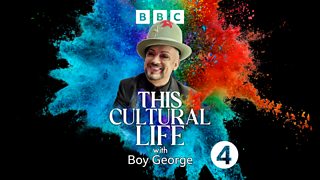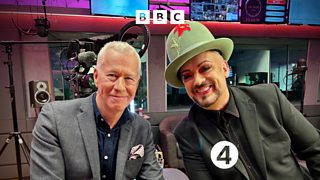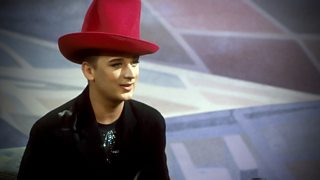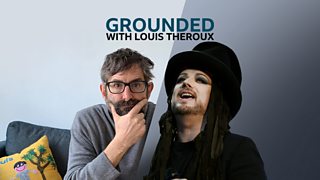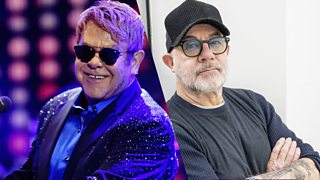Boy George: Nine things we learned from his This Cultural Life interview
Boy George has been a fixture of the British music scene since his arrival in 1982. As part of the band Culture Club, his androgynous look and love of the spotlight made him an instant sensation. He’s released 15 albums (with Culture Club and as a solo artist), had number one singles all over the world, been a judge on The Voice and released three memoirs. And he’s not done yet. In this episode of This Cultural Life, he tells John Wilson about the gig that changed his life, Andy Warhol’s rudeness and how he’s had enough of apologising. Here are nine things we learned.
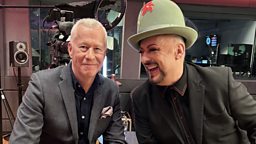
1. He knew he was different at the age of seven
Growing up in South London in the 1960s, Boy George, aka George O’Dowd, wanted to be a performer from a very early age. “It started when I was a kid singing at the local old people’s home,” he says. “I used to go and do Roll Out The Barrel, and My Old Man’s A Dustman.” He grew up with parents who were naturally creative but didn’t fully express it. “My mum could cook anything, make anything,” he says. And his dad could sing. But he says his father stifled a lot of his mother’s creativity. “Nothing got in her way, except my dad.” He thinks that is why his mum started to encourage his creative eccentricity. “When I started to be a bit of an exhibitionist, I think to start with Mum was against it. Then she thought, ‘No, he’s doing what I can’t do’ and fully supported me.”
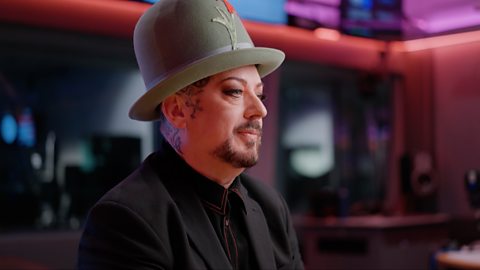
Boy George on seeing David Bowie live aged 11
The singer tells John Wilson how he managed to get a ticket for The Ziggy Stardust Tour.
2. Seeing David Bowie at 11 changed his life
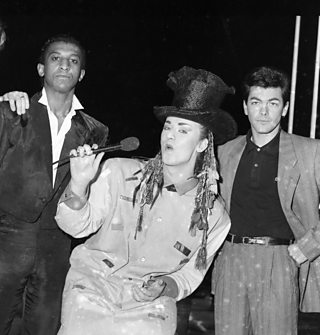
George says he’s always been something of a loner, which is how he came, at the age of 11, to go on his own to the gig that changed his life: David Bowie on the Ziggy Stardust tour. “Compare it to all the gigs I saw after and there’s nothing like it,” he says. “As a kid, it felt like he was totally talking to me. Like he totally got me.” Watching Bowie made him feel more confident about embracing his own eccentricity and sexuality as he grew up. “I definitely felt braver after that concert,” he says. Later in life, he became friendly with Bowie and says the old adage of ‘don’t meet your heroes’ did not apply: “Not at all. He was charming.”
3. He was booed at his first gig
By his late teens, George was part of the New Romantic music scene. With elaborate make-up and flamboyant fashion, he drew attention wherever he went. Which is how he caught the eye of Malcolm McLaren, famous for being the manager of The Sex Pistols but also manager of the less successful band Bow Wow Wow. He saw George and invited him to join the band. “He brought me into Bow Wow Wow because of the way I looked,” says George. “He thought it would threaten Annabella [Lwin], the lead singer.” Once McLaren had used George to make his lead singer less secure, he chucked him out. But not before he’d had his first brush with fame. “I got pushed on stage at the Rainbow Theatre… this big event,” says George. “Malcolm decided to send me on at the end of the show instead of Annabella… The audience were booing, like ‘Why are you on? We want Annabella’. But I got the taste.”
4. He was nearly lead singer of The Caravan Club
Fame duly tasted, George soon formed his own band with Roy Hay, Mikey Craig and Jon Moss. He calls their original sound “anything goes – mixing together things that shouldn’t necessarily be together”. They had a sound, but they struggled to come up with a name. “We were called Can’t Wait Club. We were called The Caravan Club. We were called all sorts of things,” he says. “Eventually we worked out we were so diverse – Jamaican, Irish, Jewish, Roy being an Essex boy – so we realised we were a mix of cultures.” And Culture Club was born.
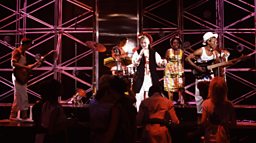
5. He thinks he got on Top of the Pops by accident
Culture Club’s huge moment came when they performed Do You Really Want To Hurt Me on Top of the Pops in 1982. Thanks in large part to Boy George’s unforgettable look, they became household names almost overnight. George thinks the appearance only happened by chance. “We only found out we were going on the night before,” he says. “We got a phone call to say there was a spot available. We were at the low end of the charts, so we weren’t even really eligible to be on there. We got lucky.” He’s not sure exactly what happened to get them the spot, but he believes it was one of two things: “The two stories were either that Shakin’ Stevens was unwell, or Elton John wanted to play his video. Either one will do. We were very grateful.”
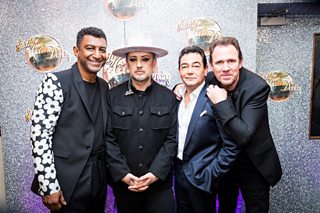
6. Andy Warhol had only rude things to say about him
Culture Club became huge, even breaking America – incredibly rare for a British band. It brought George the attention of some of the biggest members of the US art scene, including Andy Warhol. “I got a call from his assistant saying, ‘Andy’s heard you’re in town and would love to invite you for lunch.’” He met Warhol on several occasions – along with the likes of Bianca Jagger, Keith Haring, Jean-Michel Basquiat and Quentin Crisp (who George calls something of a hero, because of the strides he made for gay men) – but says Warhol didn’t understand him. “We were bitchy and funny and he didn’t really get it. He didn’t get that London humour. In his diaries (Warhol’s video diaries became a Netflix TV show in 2022), he insults me four times. Every single entry is nasty, but it’s very funny.”
7. He doesn’t want to apologise any more for his crime
In 2008, George was convicted of the assault and false imprisonment of Audun Carlsen. He was sentenced to 15 months in prison, serving four. George says he feels he’s made amends and doesn’t want to keep revisiting it: “I paid for my crime and went to prison. That’s the worst thing that can ever happen to anyone, to have your freedom taken away… I’ve been through the mill and I’ve paid, and I can’t keep paying. I’ve apologised a million times.” He says he found prison relatively easy, in part because he’d recently stopped using drugs. “I got clean a year before I went to prison,” he says. “So I had a spiritual programme and I was able to rationalise where I was in my life. I was able to say, ‘This is because of something I did in my past; it’s not who I am now.’ I’ve got to concentrate on being me and having a sense of humour about it… I knew I’d rebuild my life when I came out.”
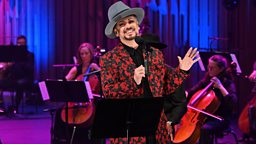
8. He will always say yes to fans
George readily admits that on occasion he’s been badly behaved in his time as a famous person, but says he will never behave badly towards fans. “When I fly, people always come up to me and ask if we can take a picture,” he says. “I always say yes, no matter what I look like. Maybe if I’m in the loo I won’t! But I made a decision about 15 years ago: I decided to be this person. I love being this person. If I’m recognised, I should be nice to people and that’s the end of it. But I like being nice to people. It’s a lot more hard work being rude, I tell you. I’ve done it!”
If I’m recognised, I should be nice to people... I like being nice to people. It’s a lot more hard work being rude, I tell you. I’ve done it!Boy George
9. He’s released 52 songs in the last two years
Culture Club released six studio albums and Boy George has released a further nine, so far, as a solo artist. He is, if anything, only accelerating as a recording artist. “I’ve released 52 tracks in the last two years on Spotify,” he says. He doesn’t think he’s done his best work yet and doesn’t see why he’d slow down. “The industry that I was in doesn’t exist. There are no rules anymore. I don’t see why anyone waits around to make a record. It’s ridiculous. It’s so easy to make records… Songwriting is easy. Getting it played is not easy.” His eyes are set on what he’s yet to do, not what he’s done. “It’s unhealthy to keep living over what you did when there’s so much more to do,” he says. “Now is everything.”
More from BBC Radio 4
-
![]()
This Cultural Life: Boy George
Listen to the full interview on This Cultural Life.
-
![]()
Desert Island Discs: Boy George
Sue Lawley's castaway is musician Boy George.
-
![]()
Grounded with Louis Theroux: Boy George
Louis chats to the '80s music legend.
-
![]()
Bernie Taupin: Nine things we learned from his This Cultural Life interview
Elton John's songwriting partner shares his creative inspirations.
